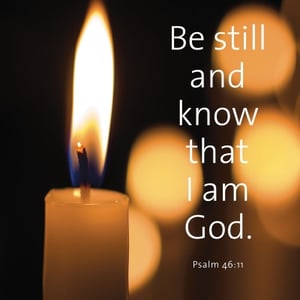 As a law student, I’ve learned a lot about the Castle Doctrine—the idea that you have a special right to protect yourself, your family, and your property within your own home.
As a law student, I’ve learned a lot about the Castle Doctrine—the idea that you have a special right to protect yourself, your family, and your property within your own home.
At first, in today’s readings, it seems like God endorses this ideal of protecting your own. “He sets up walls and ramparts to protect us,” Isaiah proclaims. “Open up the gates to let in a nation that is just.” Is this the City of God? A protected club with tall walls, strict bouncers and perfect safety?
But the readings pretty quickly shift their tone. The lofty city is brought down to be trampled underfoot by the needy. The Psalmist points out that the gate is the Lord’s, and we should take refuge only in Him. And Jesus in Matthew’s Gospel reminds us that houses built on sand by fools cannot protect us.
Yikes.
How can God promise us protection, a strong city and a rock-solid foundation at the same time that he promises to knock down all our walls for the needy? What would it look like to build our home on rock without walling ourselves in?
We have a house that can withstand floods and wind, but it cannot withstand injustice or the cries of the poor. It falls the moment we seek to exclude. When we look at what God has given us and call it “my house” rather than “our house,” we’ve missed the point.
And that means that the “house of the Lord” and “Kingdom of heaven” from today’s readings must look very different from our houses and kingdoms, with their walls and borders and security systems and legal doctrines authorizing us to shoot those seeking to enter. To paraphrase Pope Francis, walls are not Christian. God is not into walls. God wants to tear our walls down.
When Jesus comes to us on Christmas, He won’t come to the high places, protected behind ramparts and walls. He won’t even come to a warm home with a locked door. He shows up in the humblest shelter, vulnerable, available for any ol’ shepherd to come and see.
That’s where we’re invited to find God. And that’s how we’re invited to live.
So what would happen if we spent less time trying to protect and defend ourselves? How would our lives be different if we acted like we really believed Him and when He says, “Do not be afraid”? Possessiveness is based in a fear that we won’t have enough. Walls are a symptom of fear. But we are safe. We shall not fear. Our foundation is a rock.
What would happen if we acted like it?



